Iranian Dissident Rapper Sentenced To Death
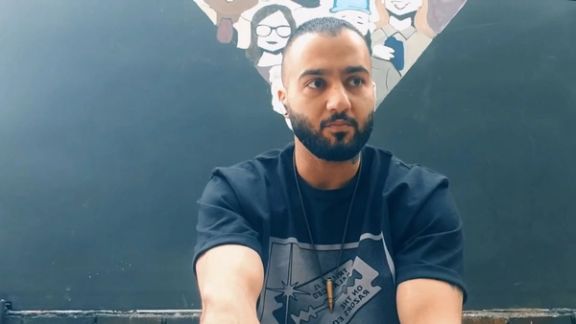
Iranian dissident rapper Toomaj Salehi, who was among the icons of Iran’s 2022 protests, has been sentenced to death on charge of “spreading corruption on earth.”

Iranian dissident rapper Toomaj Salehi, who was among the icons of Iran’s 2022 protests, has been sentenced to death on charge of “spreading corruption on earth.”
A revolutionary court in Isfahan (Esfahan) has issued the verdict, Amir Raisian told SharghDaily on Wednesday. “Spreading corruption on earth,” along with "Moharebeh," is the highest crime in Islamic Republic's version of Sharia law and it is punishable by death.
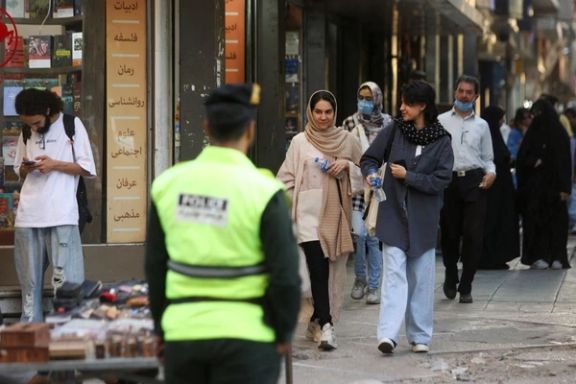
Protesters gathered at the Haft-e-Tir metro station in Tehran following the arrest of a woman over her defiance against Iran's mandatory hijab, successfully securing her release.
Eyewitnesses reported to BBC Persian that the incident began when metro security personnel stopped the woman for not adhering to the hijab law. Despite her refusal to comply with the officers' orders, a growing protest from bystanders after she was taken to a nearby room pressured the officers to release her within twenty minutes.
Political activist Mahdieh Golroo shared footage of the incident on her X account, stating that the woman was "confined in a room at the station until the public's protest led to her release."
The event comes amid renewed governmental efforts to enforce hijab regulations more strictly. On April 13, the Iranian government announced the reactivation of morality police, alongside the implementation of the Plan Noor, aimed at curbing what it deems "immodesty."
The renewed enforcement drive follows directives from Supreme Leader Ayatollah Ali Khamenei, who recently emphasized the necessity of adhering to "religious decrees" concerning the hijab, labeling non-compliance as "religious norm-breaking" activities.
The intensification of hijab enforcement in the wake of the death of Mahsa Amini in morality police custody for the inappropriate wearing of her hijab, has been met with further rebellion across society. Increased confrontations and heightened tensions across various Iranian cities have followed the uprising as the government fails to quash the nationwide refusal to be subjected to religious doctrine.
Amini's death ignited a widespread movement against the regime, marking one of the most significant challenges to the Islamic Republic since its establishment in 1979. Ongoing laws to oppress women's right to choose what to wear have been dubbed 'gender apartheid by the UN'.
The government crackdown on the uprising which followed Amini's death resulted in the deaths of at least 500 civilians and the arrest of thousands, as reported by human rights organizations. Since then, record numbers of Iranians have been executed as the regime cracks down on dissent.
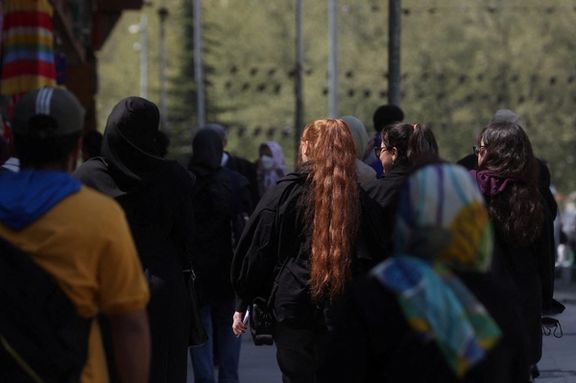
Authorities in Iran have launched a fierce battle with Iranian women over the enforcement of mandatory hijab, a struggle that has reignited widespread condemnation of the government's heavy-handed tactics.
Project Nour, the regime’s new hijab enforcement plan, has seen Iranian authorities escalate their physical efforts to enforce the Islamic Republic’s strict hijab laws. It has led to a surge in violent crackdowns targeting women on Iranian streets.
Earlier this week, Ahmad-Reza Radan, Iran's Chief of Police and commander of the country's Law Enforcement Command, announced that the police would continue the “Project Nour” with the support of the parliament, the government, and the judiciary, with "strength and precision."
In 2010, Radan was sanctioned by the US, EU and the UK for serious human rights violations and his role in the deadly and violent repression of protests during Iran’s 2009 green movement.
As reported by state-run IRIB, Radan thanked his colleagues “who are diligently involved in implementing this plan and are pursuing it with a jihadistic spirit.”
In another significant escalation, the Islamic Revolutionary Guards (IRGC) also announced its participation in the enforcement efforts, forming groups known as "Mehr Ambassadors" to uphold the strict Islamic dress code for women.
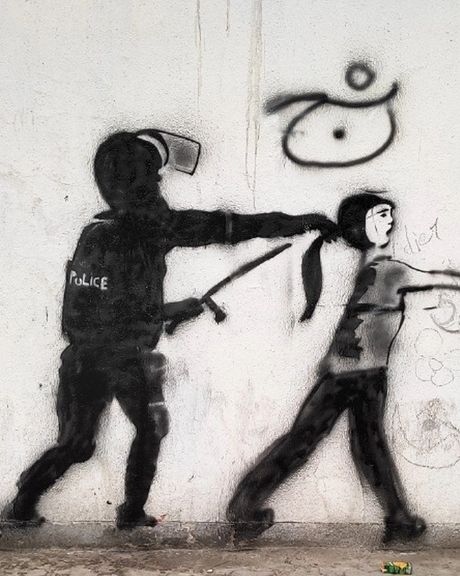
Hassan Hassanzadeh, Tehran’s IRGC commander, emphasized that the group’s rigorous training aims to enforce hijab regulations with heightened intensity in public spaces.
Hassanzadeh was sanctioned in 2022 by Western countries for his role in the violent crackdown on nationwide anti-regime protests – often called the Women, Life, Freedom uprising, sparked by the killing of Mahsa Jina Amini in police custody.
Since the launch of the “Nour” project, reports have emerged detailing disturbing instances of police officers extorting money from women in exchange for leniency, alongside allegations of theft and sexual harassment.
The situation has raised alarm both domestically and internationally, with human rights organizations, student groups and prominent activists decrying the Iranian authorities’ violations of basic freedoms and human rights.
Despite the Iranian officials' scrambling to soften criticism of the hijab crackdown, speeches by Supreme Leader Khamenei and President Ebrahim Raisi triggered a new round of suppression on unveiled women.
The regime’s enforcement campaign has also drawn condemnation from other quarters, including “The Laleh Park Mothers” also known as “Mourning Mothers” – a group of Iranian women whose family members were killed during the 2009 protests.
In their statement, issued on Monday, they condemned the renewed assault on women's freedoms, accusing the government of resorting to brutality to deflect attention from its failures.
"...with the order of Ali Khamenei with the plan of chastity and hijab in the name of “Nour", the war against women is more than intense,” the statement read.
Iran analyst and journalist Morad Vaisi posited that the recent efforts are the regime's attempt to reclaim control over women's rights, stating, “Women occupied many strongholds in the past years and forced the Islamic Republic to retreat, now the regime wants to take these strongholds back from women. Also, Khamenei has a grudge against women and feels inferior.”
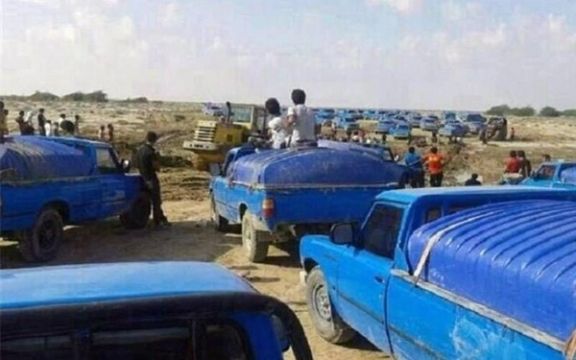
Residents of Bandar Abbas in southern Iran took to the street in protest after local police fatally shot a fuel smuggler and severely wounded another.
According to Kolbar News, the demonstration, held on Tuesday, saw citizens gathering in front of the governor's office, vocally opposing what they called "killer police." The protestors then entered the building, demanding answers and accountability for the police action.
The incident occurred on Monday evening when officers from Bandar Abbas opened fire on a vehicle carrying fuel without any prior warning. The attack resulted in the death of 20-year-old Amir Mohammad Chatr Sahar and left another man injured. Chatr Sahar was known to be from the Jamal Ahmad area of Bandar Abbas where around half the population lives in poverty, but details about the injured party remain undisclosed.
The event highlights ongoing issues in other provinces like Sistan-Baluchestan, where the annual shooting of fuel smugglers by military forces claims the lives of hundreds. Reports suggest that between March 20 and 30 alone, 27 fuel smugglers died by security forces, road accidents, and vehicle fires. Victims were typically young, between 18 and 28 years old.
In 2023, at least 172 Baluch fuel smugglers were reported dead with 42 others injured, reflecting a dire economic crisis that compels many in Iran's poorest provinces to engage in fuel smuggling to neighboring countries like Pakistan. The activity offers a vital, albeit risky, source of income due to higher fuel prices across the border.
Human rights organizations and activists continue to criticize the Iranian government for its discriminatory policies towards minority-dominated provinces such as Sistan-Baluchestan and Kordestan. These areas suffer from a lack of employment opportunities and governmental neglect, factors which significantly contribute to the prevalence of fuel smuggling.
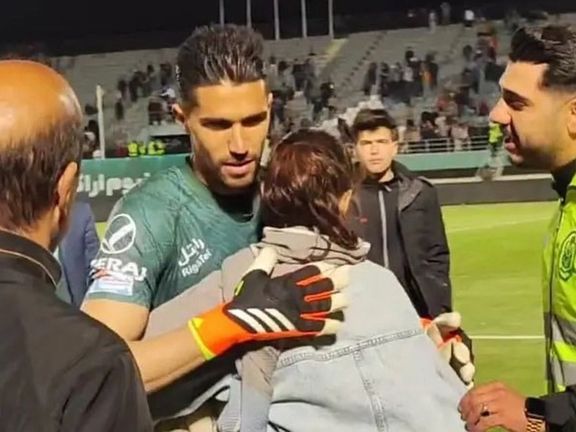
Hossein Hosseini, the captain of Iran’s Esteghlal FC and renowned goalkeeper, has been summoned to the Culture and Media Court.
The action follows a police complaint regarding an incident during a football match on April 12 when a female fan tried to evade arrest for not wearing the hijab by hugging Hosseini.
The fan, who had run onto the field to escape security personnel, was embraced by Hosseini in a protective gesture. The act, however, escalated into a confrontation with special unit forces.
Following the incident, the Esteghlal FC captain was slapped with a hefty fine of three billion Iranian rials (approximately $4,500) and a one-game suspension.
Hosseini, expressing his resolve, stated that he would pay the fine, claiming that "three billion rials for the sake of a female fan of Esteghlal is worth it."
The situation intensified when the IRGC-affiliated Fars News Agency launched a campaign demanding further sanctions against Hosseini for his comments, which led to an additional fine of 300 million rials.
The punitive measures have sparked a backlash, with Mansour Rashidi, former national team goalkeeper, criticizing the punishment, especially when compared to other public figures.
"Why was nothing said and no fine imposed when that guy (Mahmoud Ahmadinejad, the former president) hugged the mother of the Venezuelan president?" Rashidi continued.
Legal experts have also weighed in, suggesting that the disciplinary actions against Hosseini may contravene existing regulations, as he did not violate any laws aside from the Islamic rule regarding physical contact between opposite sex.
The case has also reignited discussions about women's access to stadiums in Iran, a contentious issue that has drawn international attention and criticism.
Despite FIFA's ongoing efforts to encourage the inclusion of women in football stadiums, governmental resistance citing "inadequate infrastructure" continues to limit their presence, leading only to sporadic admissions under strict controls.
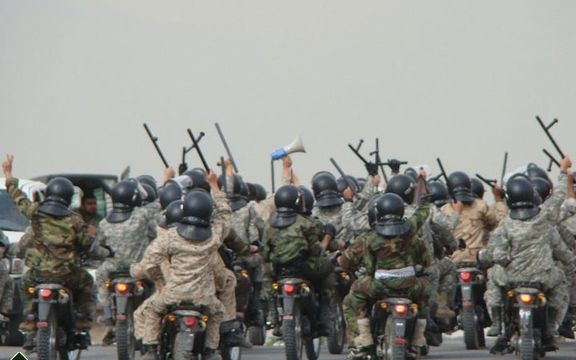
Human Rights Watch (HRW) has released a new report revealing instances of rape, torture, and sexual assault by Iranian state security forces against detainees during nationwide protests in 2022.
The findings, according to human rights experts, underscore the systematic use of torture and rape by authorities, exposing a troubling pattern of abuse aimed at suppressing dissent.
The Woman, Life, Freedom uprising in Iran was a nationwide protest movement that started in September 2022, following the killing of Mahsa Jina Amini, a 22-year-old Kurdish woman while in the custody of the regime’s so-called "morality police".
The protests persisted until at least January 2023 with over 500 protesters killed at the hands of state security forces, and over 19,400 protestors arrested as per reports by Human Rights Activists News Agency (HRANA).
HRW’s investigation focused on violations against 10 prisoners detained amid the protests.
Between September and November 2022, the detainees from Kurdish, Baloch, and Azeri minorities endured grave abuses at the hands of Iranian security forces.
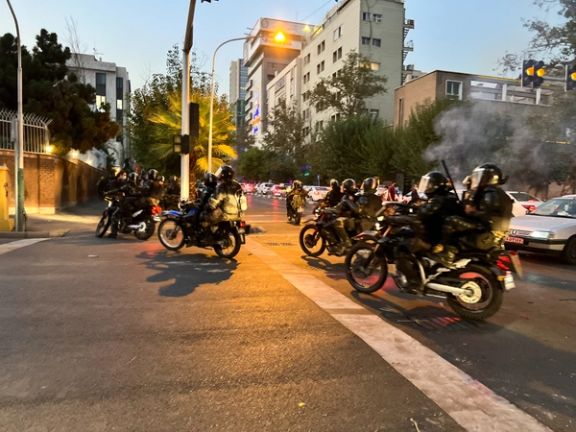
The victims, which included women, men, and children, provided HRW with testimonies of their experiences, recounting instances of torture and sexual assault inflicted upon them and other prisoners.
“Iranian security forces' brutality against detained protesters, including rape and torture, are not only egregious crimes but a weapon of injustice wielded against detainees to coerce them into false confessions,” said Nahid Naghshbandi, acting Iran researcher at HRW.
Naghshbandi also highlighted the systematic targeting of ethnic minorities in Iran, noting that the regime's use of rape and torture to further marginalize these communities.
Among the testimonies, a Kurdish woman revealed how she was raped by male security forces while their female colleague facilitated the assault in November 2022.
Another victim, a 24-year-old Kurdish man from West Azerbaijan province, described being tortured and raped with a baton after his arrest.
A 30-year-old man from East Azerbaijan Province told HRW how he and other protesters were subjected to gang rape by security forces in October 2022.
The report also brings attention to cases of suicide and severe physical trauma resulting from the sexual violence committed by the state's security officers. One woman is said to have taken her own life due to the emotional trauma inflicted upon her, while another required surgery to address injuries sustained during the assaults.
Emphasizing the urgent need for support and justice for survivors, Naghshbandi, stated that “accounts of brutal rape and the lasting traumatic consequences of those crimes should mobilize countries to meet the physical and psychological health needs of survivors who have managed to flee Iran...”
In response to HRW's findings, in an interview with Iran International, Mahmoud Amiri-Moghadam, director of Iran Human Rights, condemned the systematic use of torture and rape by various institutions of the Iranian regime, asserting that such atrocities must not go unpunished.
He underscored the importance of international awareness and accountability, urging the UN to take action against the perpetrators of these heinous crimes.
This latest report from HRW adds to a growing body of evidence documenting the widespread abuse of detainees by Iranian authorities.
Previous investigations by Amnesty International and the UN Fact-Finding Mission have similarly exposed the brutal tactics employed by Iranian authorities to suppress dissent.
He had been sentenced to one year imprisonment, two years passport annulment, and participation in a behavioral management course for 'propaganda against the system' before the death sentence was announced.
Salehi, initially released on bail on November 18 after enduring 252 days in prison, found himself back in custody just 12 days later. This followed the release of a video in which Salehi detailed the torture he endured during his imprisonment. The rapper, in the video, cited the experiences as the basis for his complaints against prison officials and government-affiliated media.
Salehi's social media account reported on December 14 that he suffered "severe damage to the eyes and face" during his latest arrest by government forces, contradicting official statements and raising concerns about the adherence to the law during the violent incident in Babol.
Salehi gained fame for his protest songs that tackled social issues and government injustices in Iran. His first arrest in October 2022 was a component of a wider crackdown on political dissidents of the regime, a response to the protests triggered by the death of Mahsa Amini in morality police custody.
In October, Salehi received the 2023 Arts Freedom of Expression Award from Index on Censorship, an organization dedicated to advocating for freedom of expression.






